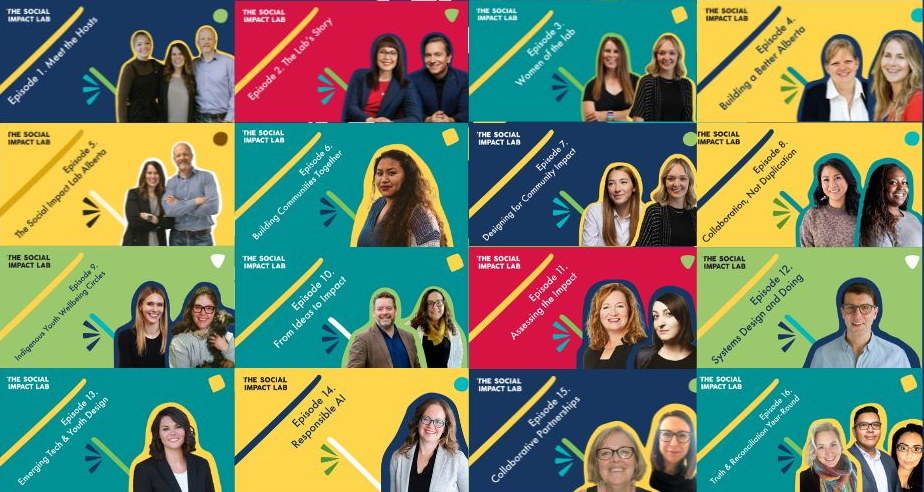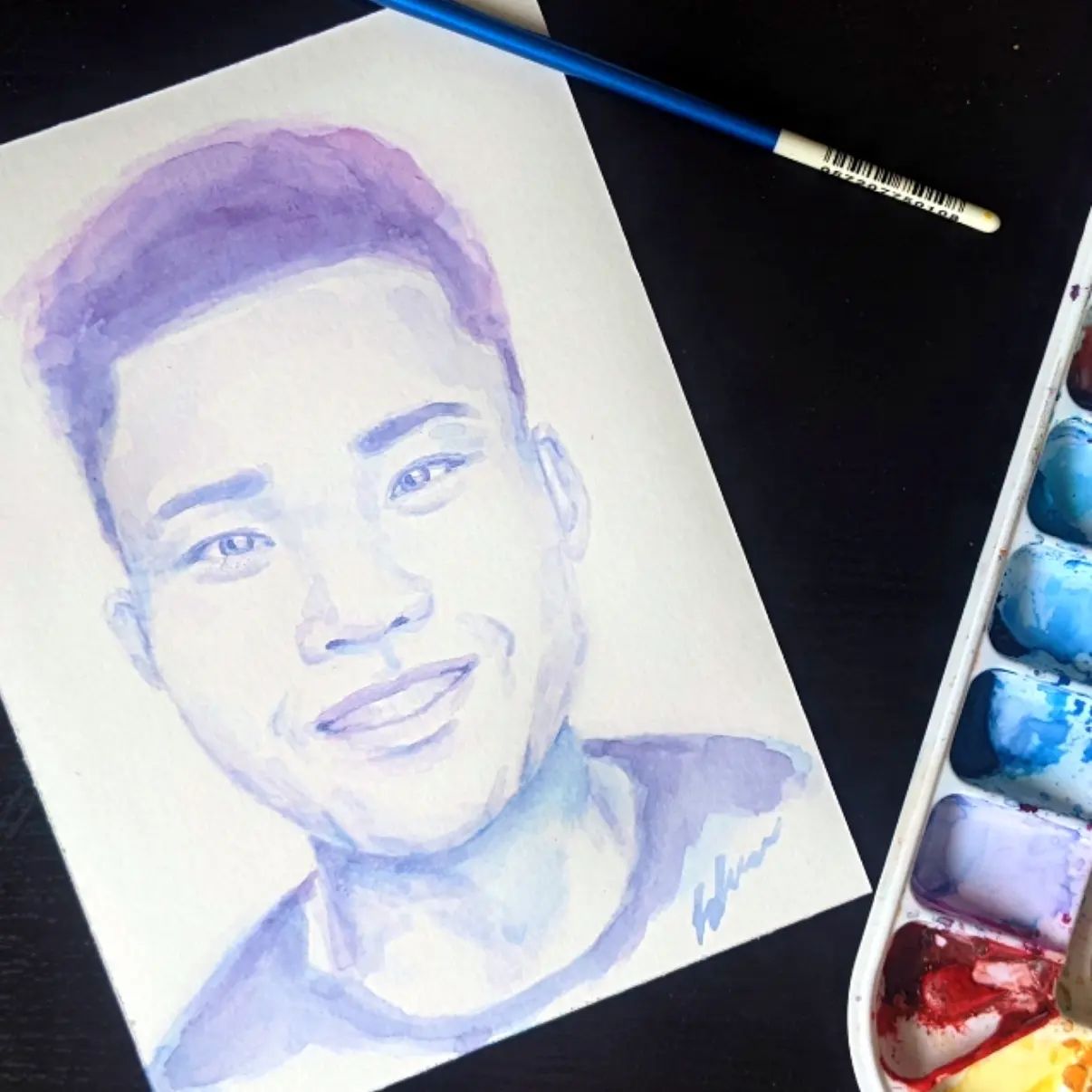Noteworthy Quotes from Responsible Disruption (Part 2)
- 7 mins
In recent months, I transcribed the first season of The Social Impact Lab's podcast, Responsible Disruption. Being an avid podcast listener, I wanted to improve accessibility. If you're curious about the importance of transcriptions, check out my article here. Each episode offered unique insights, and I've compiled some of the most memorable quotes covering topics from AI to Indigenous youth activism. You're bound to find something that catches your interest. Given the extensive number of episodes, I've divided the blog into two parts. For access to episodes 1-9, please refer to this post.
Episode 10: From Ideas to Impact
While donors and funders provide crucial financial backing to non-profits, their expectations often revolve around measurable metrics demonstrating an organization's successful impact, such as aiding a specific number of clients or achieving particular goals. Yet, this emphasis on metrics can restrict the space for crucial experimentation, a fundamental aspect of fostering innovation. In this episode, James Stauch and Bethany White shed light on the necessity to overhaul program evaluation and funding perspectives, encouraging a culture of innovation and risk-taking within the non-profit sector.
James Stauch, 16:51: “...Ontario Trillium Foundation… a public provincial funder… has just announced under a Ford government, a program for systems innovation in the youth serving sector. So this is interesting. The minimum grant is two years, but they can grant up to five or six years and it is constructed in a way that understands that it's a long journey where a relationship based on trust is fostered with the funder. Still a public funder. … In Alberta, we're still obsessed with, “you didn't do the thing we funded you for,” which is absolutely bonkers. We need to get away from that culture because it's the last thing... It's the farthest thing from innovation.”
Episode 11: Assessing the Impact
Within the competitive non-profit realm, the availability of funding remains constrained. Funders might possess a vision without the precise knowledge of which organizations can deliver the required services. Conversely, certain organizations might hold a vision without a clear understanding of potential funding sources. This confluence of challenges and inefficiencies often obstructs crucial social service projects from taking off. In this episode, explore how Joy Bowen-Eyre and Janis Galloway adeptly navigate the dynamic interplay between funders and potential recipients, illuminating the pivotal role of relationship-building in this landscape.
Janis Galloway, 38:54: “…to anybody listening who is in an organization that doesn't have a lot of resources or doesn't have a lot of capacity for evaluation, I would really encourage you to not feel overwhelmed. It doesn't have to be rocket science. Just starting small and building a culture of evaluation is the best place to start and don't feel like you have to have all this amazing software and tools and these very sophisticated evaluation. Just start somewhere. And that's been the learning lesson for me over the last two years, is that there's a lot of great resources out there to help you get on this journey and keep improving and working on how you evaluate and how you collect data…”
Episode 12: Systems Design and Doing
In the pursuit of solutions to our climate crisis, organizations, researchers, and innovation hubs are engaged in a global race spanning continents. However, this endeavor necessitates a coordinated and interconnected system design. Design, in this context, extends beyond tangible products or service delivery to encompass the connectivity of our networks. Roland Harwood delves into the art of thoughtful networking, from engaging with various systemic levels to sparking serendipitous conversations with new acquaintances. This episode explores diverse case studies, illustrating the critical role of collaboration and meaningful connections among different organizations.
Roland Harwood, 33:11: “...I would probably describe myself more as an introvert than an extrovert. So just in case there's anyone listening who thinks they're not a natural networker, it's not only for the extroverts and the loudmouths out there. There's ways of doing it for people that like to engage with people in a different way perhaps a deeper, more thoughtful one to one way, but pairing off with somebody with a complementary skill set, of course, is a great idea. Rather than working on your perceived weaknesses, why don't you just benefit from other people's strengths and bring your strengths to that relationship in a different way.”
Episode 13: Emerging Tech and Youth Design
Virtual reality tools now serve purposes beyond entertainment and productivity, facilitating connections with nature and guiding individuals through historical sites. LeeAnne Ireland and the Urban Society for Aboriginal Youth (USAY) have utilized augmented reality to introduce innovative approaches to Indigenous language and place-based education. Surprisingly accessible, this technology is transforming teaching and enhancing learner support. Discover more in this episode about the revolutionary potential of VR and new technologies in education.
LeeAnne Ireland, 5:36: “You're putting on a headset, you're being transported to a completely immersive experience…. They're empathy machines, right? So they trigger that empathy pathway in your brain, and it opens up more of that sympathetic, empathetic part of your brain, which helps people engage with the content in a more deeper, meaningful way, which I think is super cool and very, very effective. And we see that when people actually have emotional reactions when they're in a headset or when they're at some of these experiences, people will cry or laugh, or have very emotional responses. So I think that's why the technology is particularly important to keep pursuing.”
Episode 14: Responsible AI
In handling AI, a responsible approach is imperative, but the question remains whether ethical AI is merely a trend or a matter taken seriously. Various jurisdictions in North America and Europe have implemented disparate rules and regulations, underscoring the necessity for a universal approach. Additionally, the issue of bias in data persists, although Nicole Janssen contends that with a large and accurate dataset, AI can potentially be more ethical than humans. In this episode, Nicole emphasizes the importance of a unified regulatory approach to AI, its capabilities, and the need for critical thinking beyond sensational headlines.
Nicole Janssen, 24:59: “…follow experts, listen to experts. Don't just listen to the headlines because there's all the headlines, the majority of them are very fear based. They're sensational. Find some key groups that are experts in that area…and just follow those individuals and start small. One of my favorite books that we give to most of the people who join us who aren't technical is Prediction Machines, and it really just explains the potential for machine learning and AI in a simple way.”
Episode 15: Collaborative Partnerships
As the population ages, proactive long-term planning becomes increasingly essential. While BC has led the way with a coordinated senior support system, Alberta is now poised to follow suit, building on the groundwork laid by a report gathering ideas for a coordinating mechanism in early 2020. They accelerated the launch of the significant platform, Core Alberta, a few months ahead of schedule. This episode delves into the grassroots beginnings of the Healthy Aging Alberta movement, highlighting its role in fostering cross-sector collaboration.
Karen McDonald, 12:45: “Almost 100% of seniors, when polled, would prefer to stay in their homes. That really requires an activation of community based supports and that requires a level of coordination that Healthy Aging Alberta can help to support from a policy perspective, and so that co-creation approach with our colleagues in government has really allowed us to begin to support some of those objectives, both for seniors as well as for government, as well as for community based organizations.”
Episode 16: Truth and Reconciliation Year-Round
To truly honor Truth and Reconciliation Day, it is crucial for each of us to actively engage in research on this critical matter. Sarena Provost highlights the challenge faced by Indigenous individuals in declining offerings of tobacco, as continuous offers, although well-intentioned, can lead elders to spiritual exhaustion. This episode delves into the distinctive and similar experiences of three Indigenous leaders within their communities, workplaces, and families, offering practical insights and guidance on how to authentically commemorate Indigenous history and culture throughout the year.
Tim Fox, 46:30: "So there's a website called The Conversation and the article on that website is called Settlers With Opinions. So I always use that article not to let people know this work isn't about guilt or shame or anger. That's not our point. That's not what we desire to amplify in people or participants who are engaged in the things that we do. But there are challenging attitudes and beliefs out there who used to really get to me…”
Episode 17: Disruption Proof
Has innovation truly taken place within any major organization, or has it merely become another gimmick, an excessively used term that has lost its true meaning? In this episode, Brant Cooper delves into the type of leadership and team environment required for fostering resilience. Discover how empathy, exploration, equilibrium, evidence, and ethics must be demonstrated by individuals within businesses to be considered RAD (resilient, aware, dynamic). Despite the challenges prevalent in the corporate space, many of these lessons can also be applied to the non-profit sector.
Brant Cooper, 20:29: “…it's a healthy discussion and you need to bring evidence and you need to be able to point out things that you disagree with. There has to be this open disagreement, and I find in some organizations that there's so much respect that nobody's actually ever pushing back on anything.”
All images courtesy of the Social Impact Lab.









